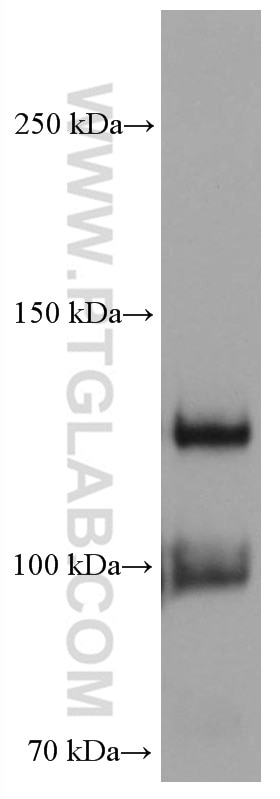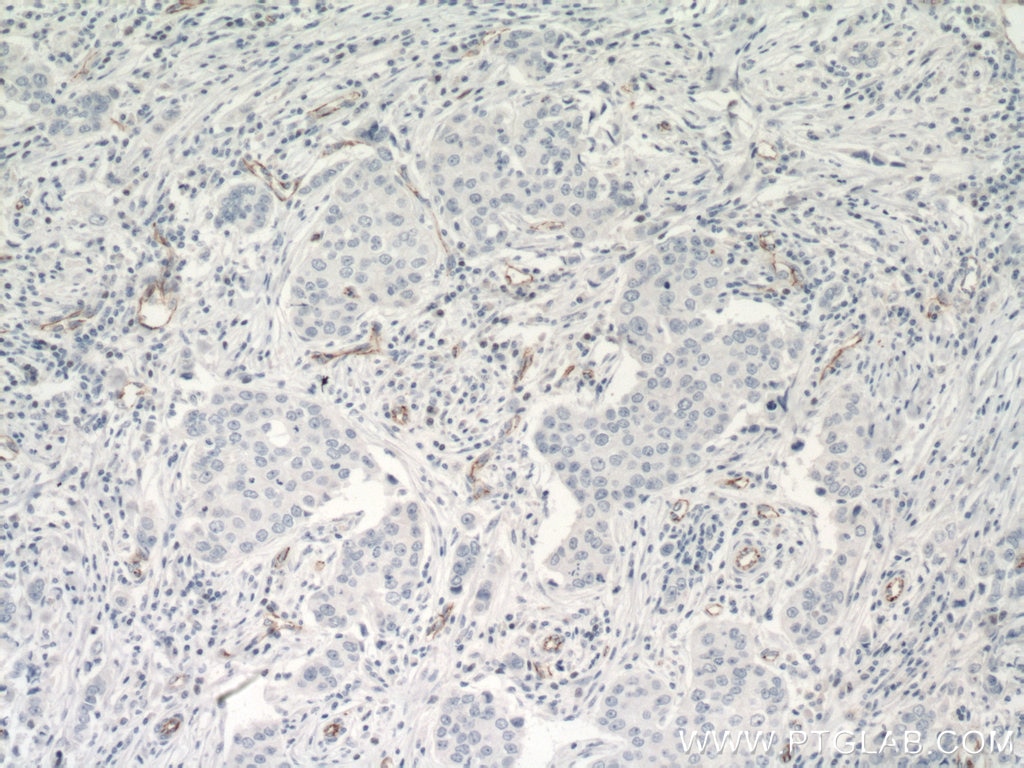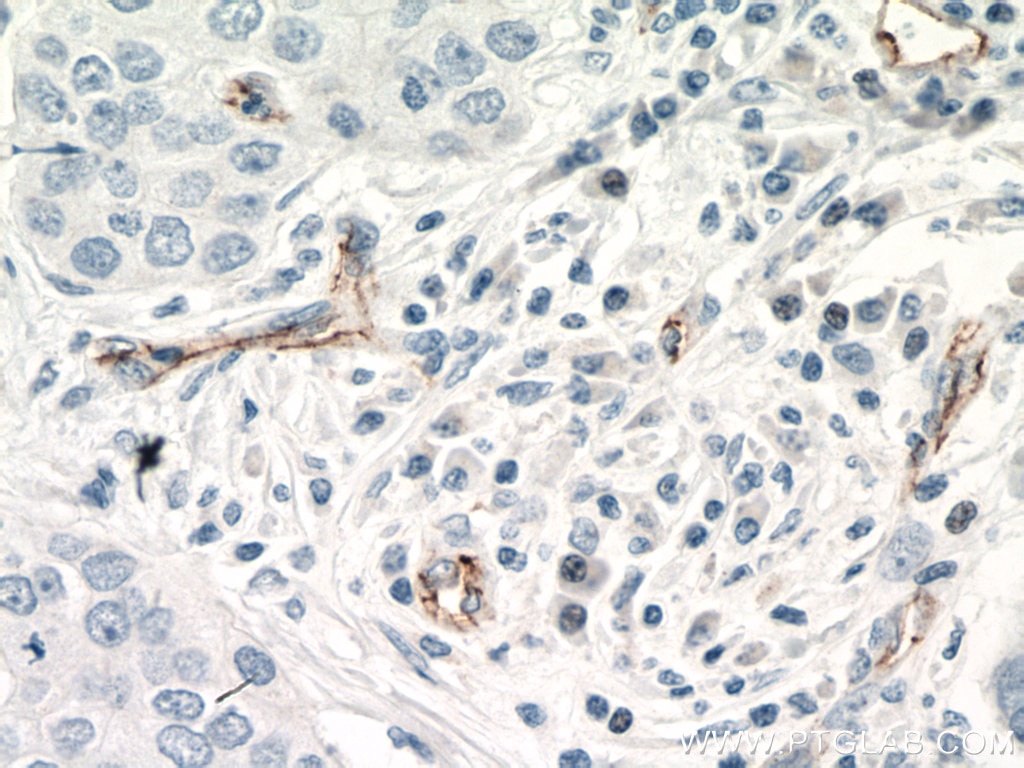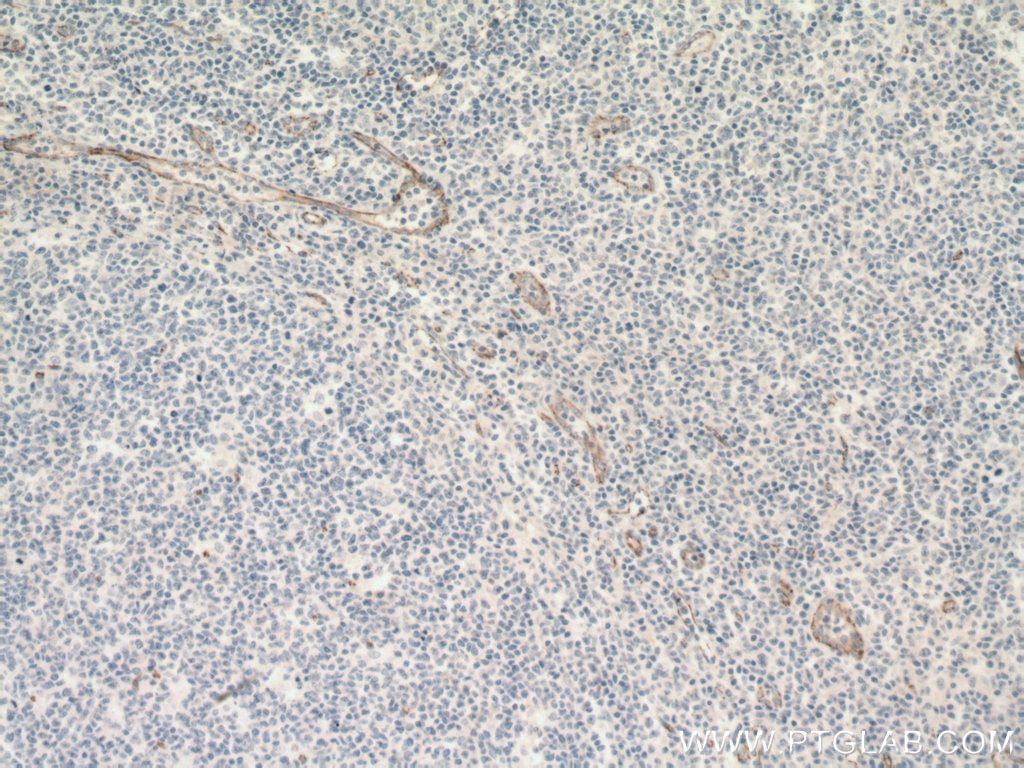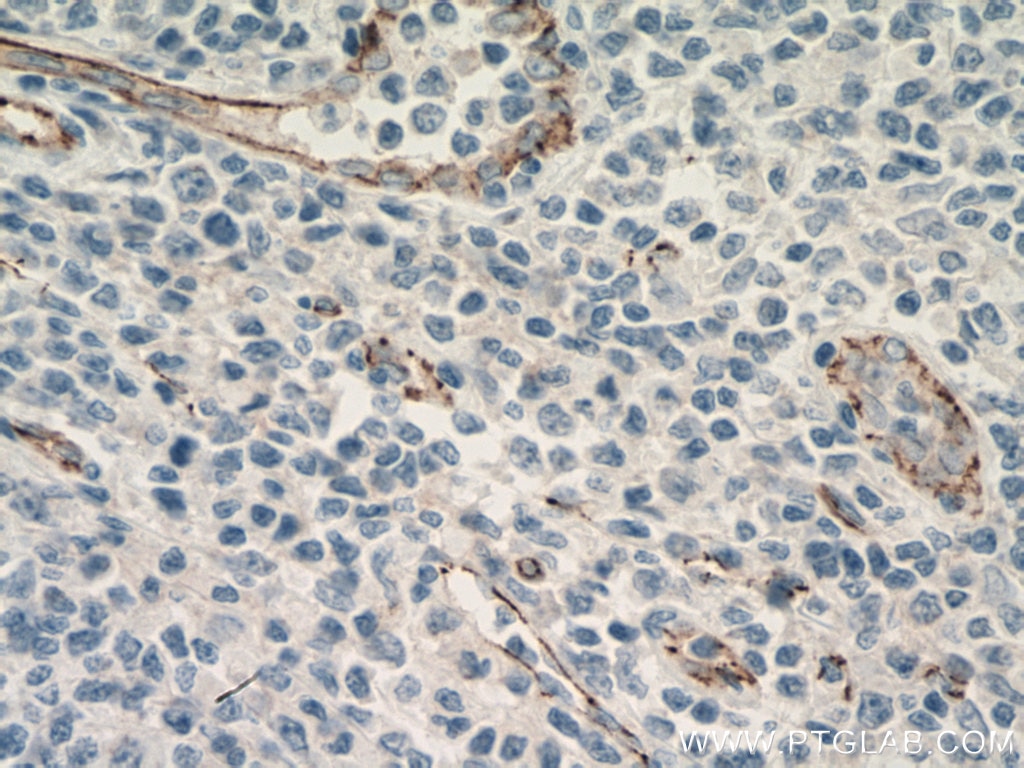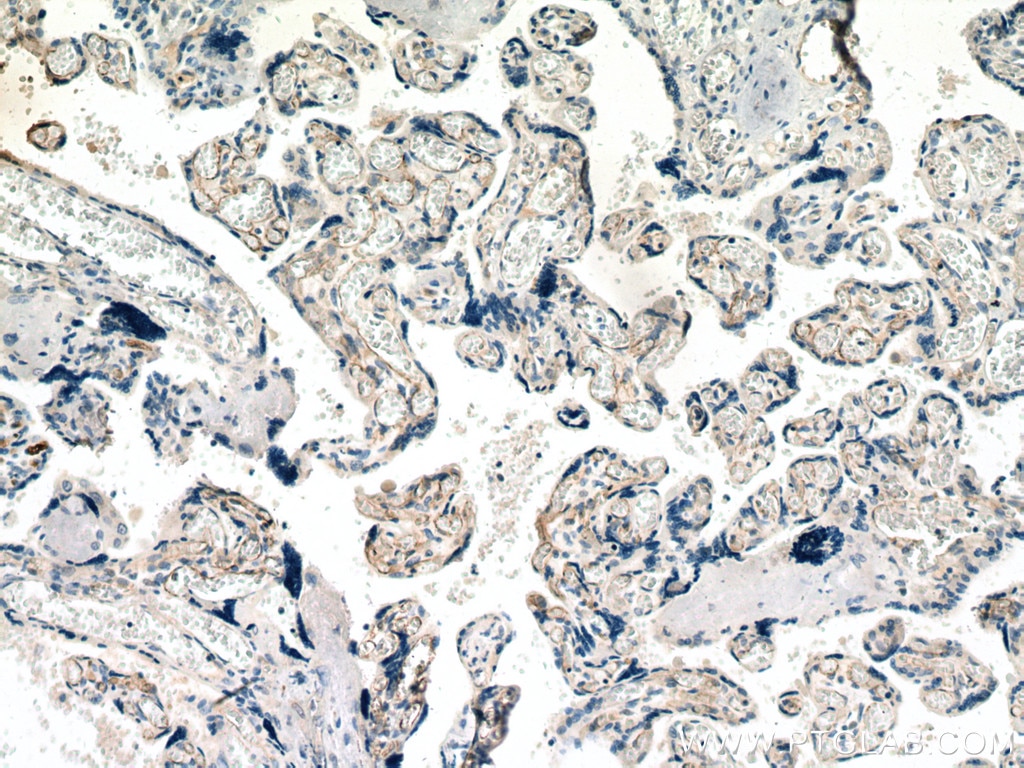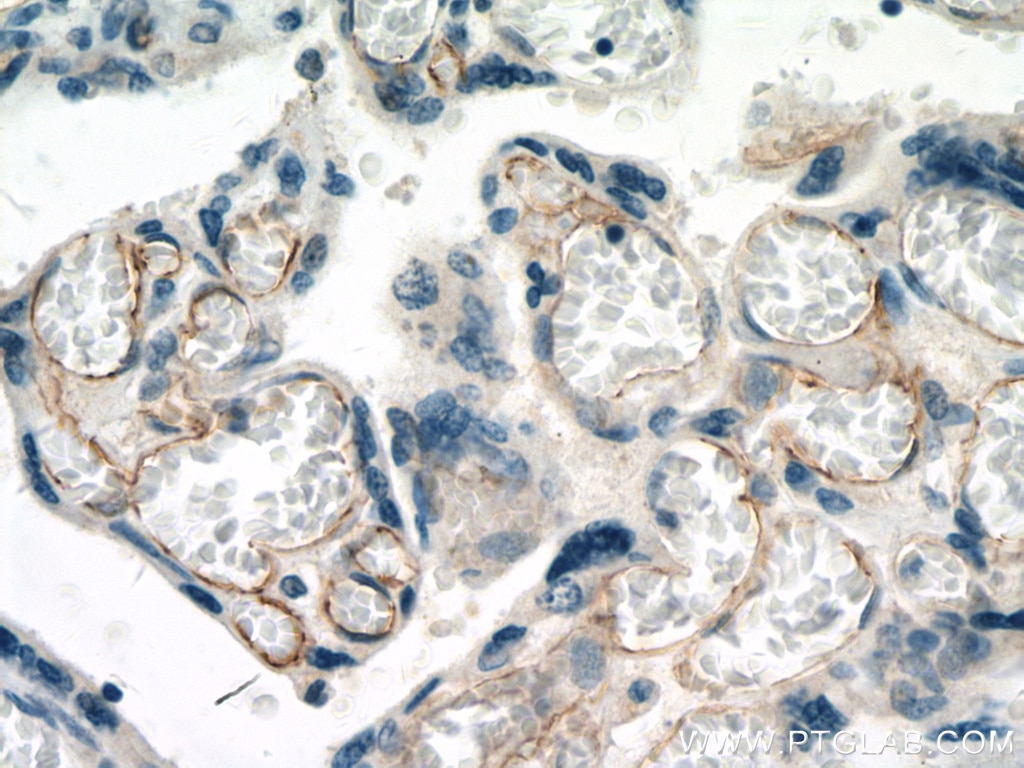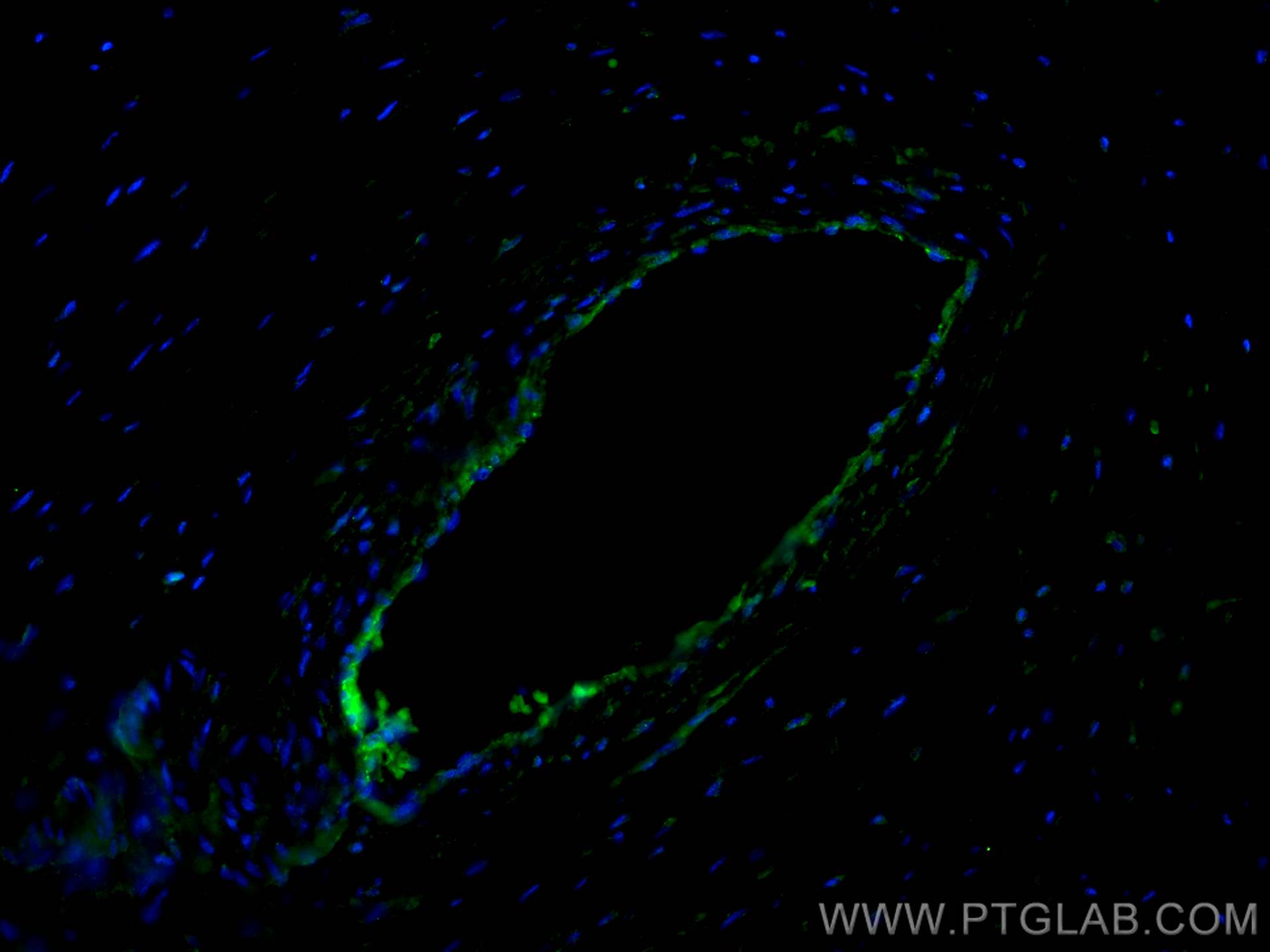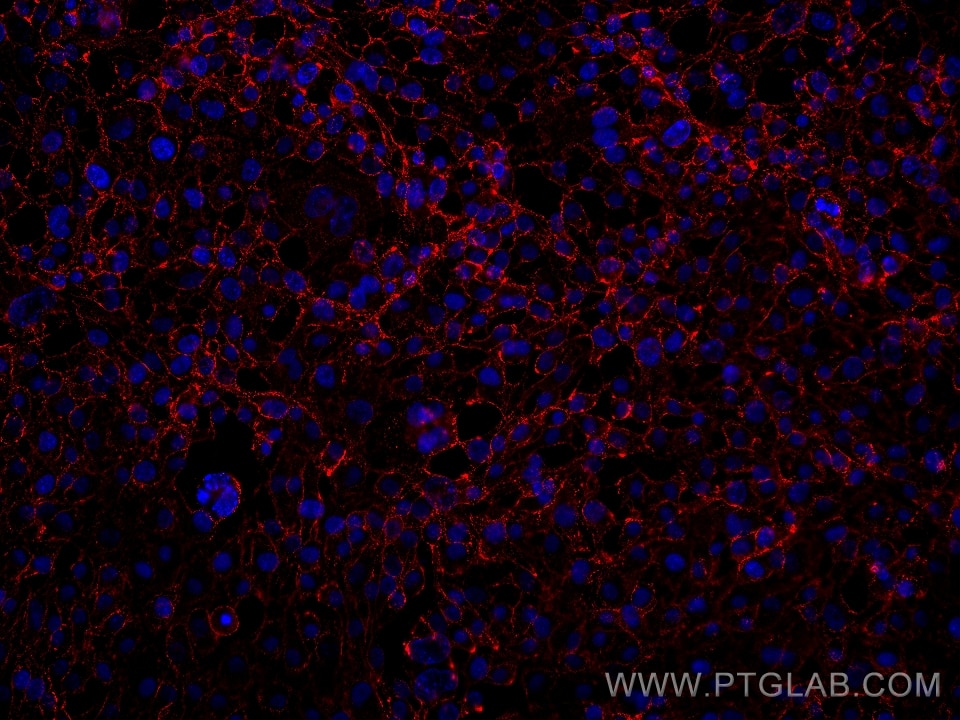VE-cadherin/CD144 Monoklonaler Antikörper
VE-cadherin/CD144 Monoklonal Antikörper für WB, IHC, IF-P, ELISA
Wirt / Isotyp
Maus / IgG1
Getestete Reaktivität
human
Anwendung
WB, IHC, IF-P, ELISA
Konjugation
Unkonjugiert
CloneNo.
4F9B10
Kat-Nr. : 66804-1-Ig
Synonyme
Geprüfte Anwendungen
| Erfolgreiche Detektion in WB | humanes Plazenta-Gewebe |
| Erfolgreiche Detektion in IHC | humanes Mammakarzinomgewebe, humanes Plazenta-Gewebe, humanes Tonsillitisgewebe Hinweis: Antigendemaskierung mit TE-Puffer pH 9,0 empfohlen. (*) Wahlweise kann die Antigendemaskierung auch mit Citratpuffer pH 6,0 erfolgen. |
| Erfolgreiche Detektion in IF-P | humanes Plazenta-Gewebe |
| Erfolgreiche Detektion in IF/ICC | HUVEC-Zellen |
Empfohlene Verdünnung
| Anwendung | Verdünnung |
|---|---|
| Western Blot (WB) | WB : 1:1000-1:6000 |
| Immunhistochemie (IHC) | IHC : 1:100-1:400 |
| Immunfluoreszenz (IF)-P | IF-P : 1:200-1:800 |
| Immunfluoreszenz (IF)/ICC | IF/ICC : 1:750-1:3000 |
| It is recommended that this reagent should be titrated in each testing system to obtain optimal results. | |
| Sample-dependent, check data in validation data gallery | |
Veröffentlichte Anwendungen
| WB | See 25 publications below |
| IHC | See 4 publications below |
| IF | See 10 publications below |
Produktinformation
66804-1-Ig bindet in WB, IHC, IF-P, ELISA VE-cadherin/CD144 und zeigt Reaktivität mit human
| Getestete Reaktivität | human |
| In Publikationen genannte Reaktivität | human |
| Wirt / Isotyp | Maus / IgG1 |
| Klonalität | Monoklonal |
| Typ | Antikörper |
| Immunogen | VE-cadherin/CD144 fusion protein Ag27501 |
| Vollständiger Name | cadherin 5, type 2 (vascular endothelium) |
| Berechnetes Molekulargewicht | 88 kDa |
| Beobachtetes Molekulargewicht | 125 kDa, 100 kDa |
| GenBank-Zugangsnummer | NM_001795 |
| Gene symbol | VE-cadherin |
| Gene ID (NCBI) | 1003 |
| Konjugation | Unkonjugiert |
| Form | Liquid |
| Reinigungsmethode | Protein-G-Reinigung |
| Lagerungspuffer | PBS with 0.02% sodium azide and 50% glycerol |
| Lagerungsbedingungen | Bei -20°C lagern. Nach dem Versand ein Jahr lang stabil Aliquotieren ist bei -20oC Lagerung nicht notwendig. 20ul Größen enthalten 0,1% BSA. |
Hintergrundinformationen
Cadherins are a family of transmembrane glycoproteins that mediate calcium-dependent cell-cell adhesion and play an important role in the maintenance of normal tissue architecture. Vascular endothelial cadherin (VE-cadherin), also known as Cadherin-5 (CDH5) or CD144, is a member of the type II classical cadherin family of cell adhesion proteins (PMID: 21269602). VE-cadherin is expressed specifically in endothelial cells and mediates homophilic adhesion in the vascular endothelium (PMID: 1522121; 8555485; 21269602). VE-cadherin plays a role in the organization of lateral endothelial junctions and in the control of permeability properties of vascular endothelium (PMID: 1522121). VE-cadherin has also been shown to be required for angiogenesis (PMID: 16473763; 18162609).
Protokolle
| PRODUKTSPEZIFISCHE PROTOKOLLE | |
|---|---|
| WB protocol for VE-cadherin/CD144 antibody 66804-1-Ig | Protokoll herunterladen |
| IHC protocol for VE-cadherin/CD144 antibody 66804-1-Ig | Protokoll herunterladenl |
| IF protocol for VE-cadherin/CD144 antibody 66804-1-Ig | Protokoll herunterladen |
| STANDARD-PROTOKOLLE | |
|---|---|
| Klicken Sie hier, um unsere Standardprotokolle anzuzeigen |
Publikationen
| Species | Application | Title |
|---|---|---|
Acta Pharmacol Sin Endothelial deubiquinatase YOD1 mediates Ang II-induced vascular endothelial-mesenchymal transition and remodeling by regulating β-catenin | ||
EMBO Rep Mouse endothelial OTUD1 promotes angiotensin II-induced vascular remodeling by deubiquitinating SMAD3 | ||
Biomed Pharmacother Ginsenoside Rg1 ameliorates hypoxia-induced pulmonary arterial hypertension by inhibiting endothelial-to-mesenchymal transition and inflammation by regulating CCN1 | ||
Regen Biomater Microvascular network based on the Hilbert curve for nutrient transport in thick tissue | ||
J Invest Dermatol Endothelial Piezo1 mediates barrier dysfunction and NLRP3 inflammasomes activation in psoriasis | ||
J Cell Mol Med Adrenomedullin Inhibits the Efficacy of Combined Immunotherapy and Targeted Therapy in Biliary Tract Cancer by Disrupting Endothelial Cell Functions |
